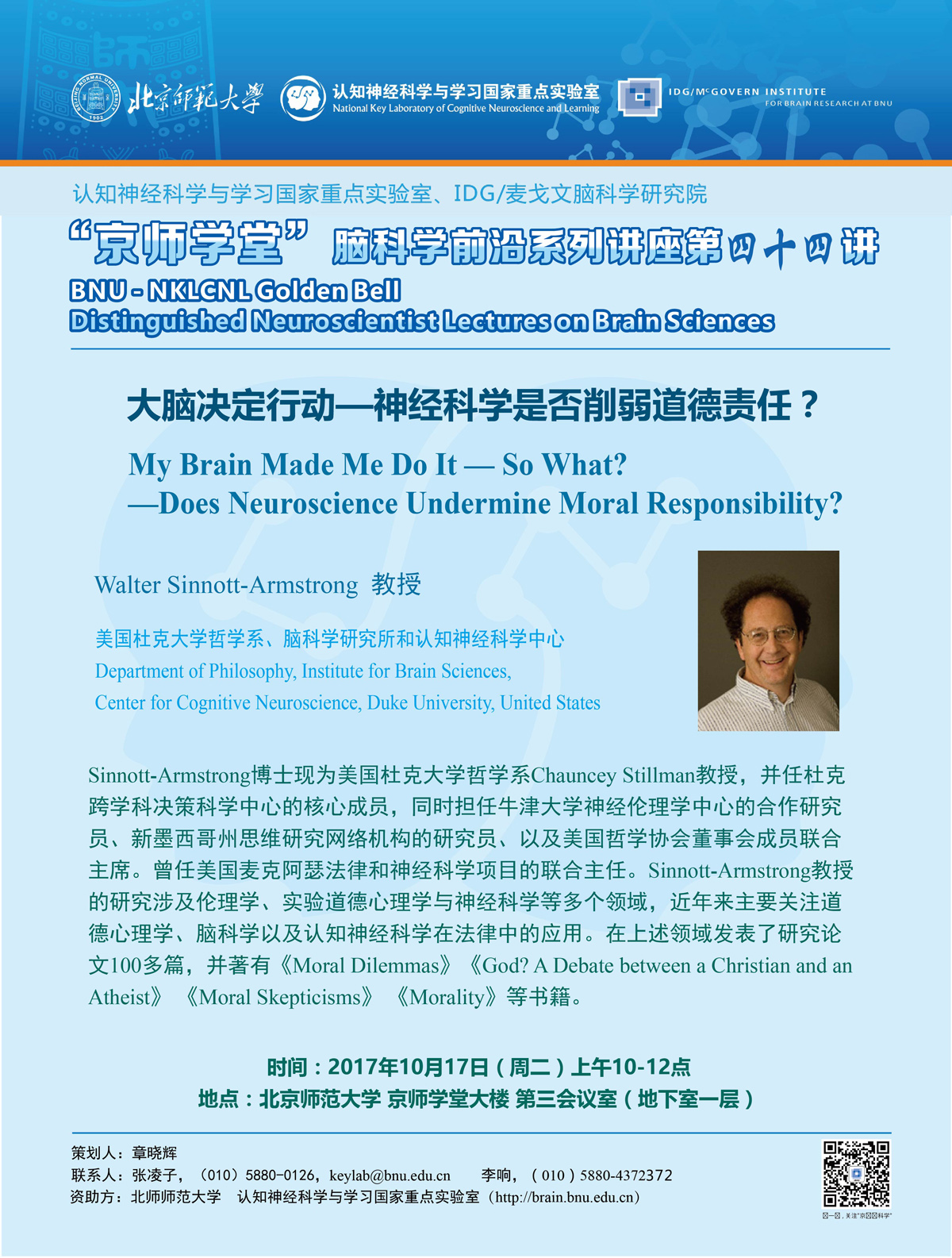大脑决定行动——神经科学是否削弱道德责任?
My Brain Made Me Do It — So What?
—Does Neuroscience Undermine Moral Responsibility?
Walter Sinnott-Armstrong 教授
美国杜克大学哲学系、脑科学研究所和认知神经科学中心
Department of Philosophy, Institute for Brain Sciences, Center for Cognitive Neuroscience, Duke University, United States
Sinnott-Armstrong博士现为美国杜克大学哲学系Chauncey Stillman教授,并任杜克跨学科决策科学中心的核心成员,同时担任牛津大学神经伦理学中心的合作研究员、新墨西哥州思维研究网络机构的研究员、以及美国哲学协会董事会成员联合主席。曾任美国麦克阿瑟法律和神经科学项目的联合主任。Sinnott-Armstrong教授的研究涉及伦理学、实验道德心理学与神经科学等多个领域,近年来主要关注道德心理学、脑科学以及认知神经科学在法律中的应用。在上述领域发表了研究论文100多篇,并著有《Moral Dilemmas》《God? A Debate between a Christian and an Atheist》 《Moral Skepticisms》 《Morality》等书籍。
讲座摘要
Our brain states cause our actions. Does that show that we are never free or morally responsible for our actions? No, and I will explain why not. My explanation involves philosophy (the nature of freedom and moral responsibility as well as mental causation), neuroscience (recent EEG experiments, neural plasticity, and dynamic systems), case studies (pedophilia and psychopathy), and policy (who should be held legally responsible?). The overall lesson is that neuroscience informs our judgments of moral responsibility instead of undermining them.
时间:2017年10月17日 (周二)上午10-12点
地点:北京师范大学京师学堂大楼第三会议室(地下室一层)
